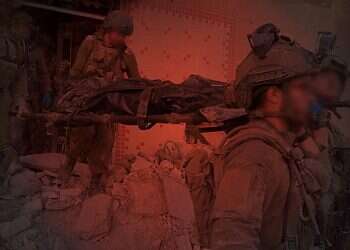Israel's official representatives worldwide include, aside from the Jewish state's myriad of ambassadors and consuls, 20 military attachés, who currently serve in various nations from Chile, Brazil and Africa, through Greece and Germany, to the United States and Canada.
Their assignments are usually three years long and, as one of the criteria for the position is having served in the IDF in a combat role, they are – at least for now – all men.
Israel instated the position of defense attaché in 1948, soon after its inception. But other than knowing this role exists, the public remains largely oblivious to what it actually entails.
Follow Israel Hayom on Facebook and Twitter
The role of the defense attachés is to find areas in which the countries where they are stationed and Israel can collaborate. Such cooperation is reflected in several key aspects including force-building, the sphere of international legitimacy and influence, and fostering operational leeway for Israel and the IDF.
With respect to force-building, the attachés deal mainly with issues of joint training exercises between the IDF and foreign armies, knowledge-sharing, and the joint development of weapons and capabilities – all of which underscore operational affinity.
In cultivating the sphere of international legitimacy and influence, the attachés have something of a public diplomacy role, as they strive to create a better understanding of what the IDF does. They also address issues such as defense exports, a mission that is executed under the supervision of the International Defense Cooperation and Information Security directorates at the Defense Ministry, as well as in coordination with any other relevant government ministries.
The logistical and educational process pertaining to the attaché's assignment, including the officers' training and helping them and their families settle in their foreign destination are supervised by the Foreign Relations Division in the IDF. It includes language and cultural studies about the attaché's destination, and training that pertains to the nature of the defense ties between Israel and the destination country.
Prospective attachés also visit their destination at least once before their assignment begins, and they also have to undergo strict etiquette training, courtesy of the Foreign Ministry.
The more famous aspect of the defense attachés' role undoubtedly touches on the search and rescue missions the Israeli military often sends to disaster-stricken areas in countries such as Brazil, Nepal, and Turkey. When an aid mission sets forth, the attaché is also responsible to coordinate their arrival and mission with local authorities, especially if it involves rescuing Israeli nationals.
But why does the IDF need to have permanent representatives overseas? Do they really have a strategic advantage over other emissaries? The six attachés who spoke with Israel Hayom all answered with a resounding yes.
'You want to talk to me? Speak my language'
Col. German Giltman, 46, is Israel's defense attaché to Russia. His mission, which began in 2017, has so far seen two major events: The September 2018 downing of a Russian cargo plane by Syria air defenses trying to counter an Israeli strike on terror targets; and the April 2019 deal that saw Moscow mediate the return of the remains of fallen IDF soldier Zachary Baumel after 37 years via a prisoner exchange deal with Syria.
Baumel was interred in Mount Herzl Military Cemetery in Jerusalem. As Russia played a key role in the recovery of his remains, Giltman led a high-ranking delegation of Russian military officers to visit the gravesite.
The Russian military "deserves every credit for what they did, risking Russian soldiers' lives to recover the remains of a soldier who served in another army," he said. "Honoring the memory of fallen soldiers is one of the deepest shared values for Russians and Israelis. When we were at the cemetery I told the Russian officers that thanks to them, he was finally able to rest in peace. They were visibly moved."
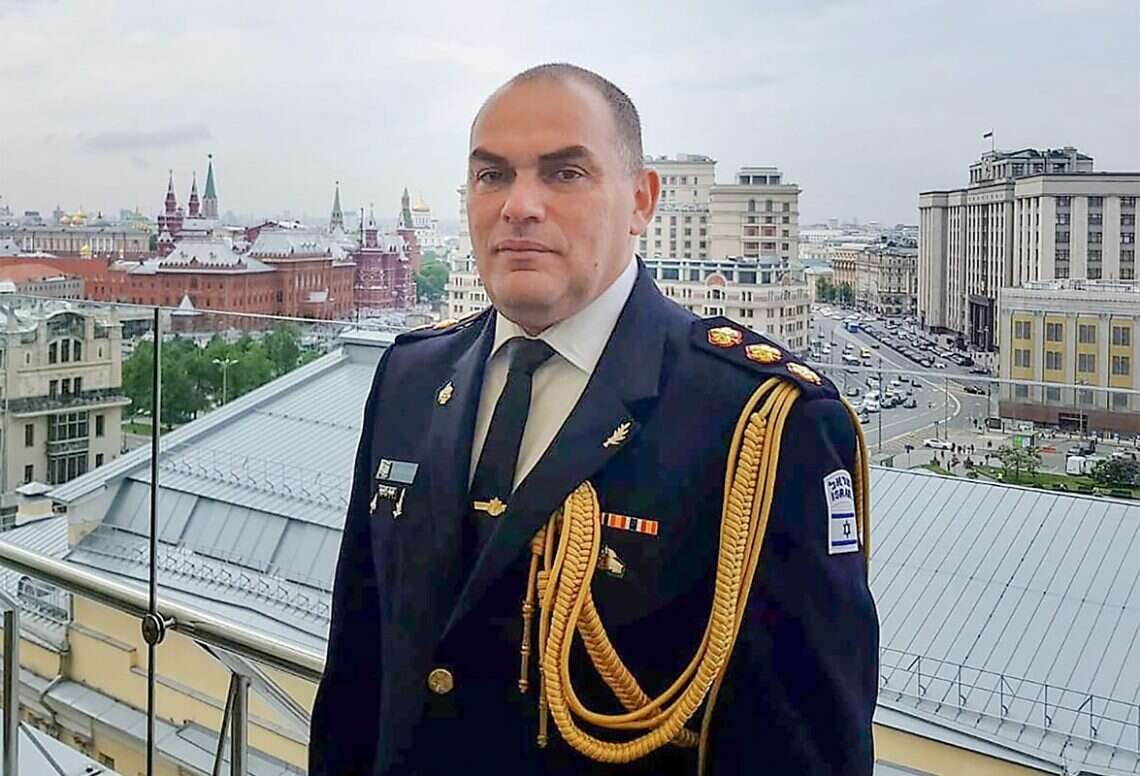
His role in mitigating the downed plane incident was far more pivotal as there was the risk that it would seriously hamper Jerusalem's close relationship with Moscow.
"Neither side really wanted the incident to strain ties," Giltman noted. "Where there is a common interest you can foster common language and mutual understandings. It opens up different avenues [of operation]."
What was once cold diplomatic ties have evolved into a close and friendly working relationship, he continued. "There's a regular forum that meets three or four times a year in Moscow or in Israel to discuss and resolve various issues.
"With regard to the downing of the Russian aircraft – the responsibility for that lies squarely with Syrian air defense. We learned a lot from that incident. We learned how to prevent such things and how to relate to a third party," he said, referring to the presences of the Russian Air Force in the Middle East's skies.
Giltman, whose staff includes only one additional officer, is also involved in issues pertaining to security coordination, the training cadets in the National Security College in Russia receive and, of course, Prime Minister Benjamin Netanyahu's frequent visits to the Kremlin.
Giltman immigrated to Israel from Ukraine at the age of 18 and says that the fact he was already fluent in Russian proved imperative. "You have to understand the subtleties and the mentality, and the local mentality here is that everything is done in Russian. You want to talk to me? Speak my language," he said.
'It's all about the people'
Col. Tzvika Shahar, 45, was named Israel's defense attaché in Greece in 2017. "This is hard work and there's a lot of it. This takes commitment and effort," said Shahar, who is based in Athens. "The importance of the role lies with its contribution to the Israeli defense establishment."
Over the past three years, the Office of the Military Attaché in Athens has been focusing on the dozens of joint ground and air maneuvers the IDF and the Greek defense forces have been conducting.
This is complemented by two other types of collaboration: an increase in defense exports to Greece and interpersonal interaction between senior officers.

"The significance of personal interaction cannot be overstated," he explained. "You meet with senior officials informally almost on a weekly basis, because the level of cooperation is such that it requires your physical presence on the ground."
Giltman and Shahar's counterpart in Africa is Col. (res.) Aviezer Segal. Formerly the defense attaché in Russia, Segal assumed his current position in 2015 and its term is set to come to its end next year.
But unlike his European colleagues, Segal is a "roaming attaché," meaning he is based in Israel and travels regularly to eight African countries vis-à-vis Israel is making a special effort to bolster ties, namely Ethiopia, Kenya, Uganda, Tanzania, Rwanda, Nigeria, Ghana, and Zambia.
Segal was offered the position after serving in the IDF for 25 years, which also included a stint as an attaché in Moscow. He told Israel Hayom that he didn't hesitate to accept the role as he feels that "military diplomacy is part of Israel's national security."
As he is a reservist, the state officially calls on him for 60 days a year, but he said that he and the other three roaming attachés, who are also reservists and oversee the Nordics, the Balkans, and the Iberian Peninsula, all volunteer for a far greater number of days on duty.
Activities in Segal's sector focus on the war on terror. This includes training seminars for Israeli and African officials. One such venture, held in collaboration with the IDF, the Defense Ministry, and the Foreign Ministry, is called "Mobile Training Team," as part of which three teams of Israeli officers traveled to Africa for a weeklong seminar during which they trained their local counterparts in what he called "basic military capabilities."

Segal is the first defense attaché to Africa and following his nomination, Tanzania, Zambia, Angola, and the Ivory Coast named their own military attachés to Israel, and these mutual ties have been flourishing.
Speaking with Segal, it is clear he believes the role carries a message far greater than its dry definition.
Israel, he said, "Is not [operating] alone in Africa – there are other powers in this area. But we speak at eye level, with a sense of partnership. I'm always asked what's our secret, and my answer is education, values, and how we do things. We bring 'Israeliness' to Africa."
'These defense ties are paramount'
Brig. Gen. Amir Keren is one of six attachés assigned to the United States. This number may sound unusual, but it seeks to reflect the gravity that Israel lends to its defense ties with the world's No.1 superpower and its most strategic ally.
As such, the IDF names a regional defense attaché who oversees five additional emissaries, representing the air force, navy, ground forces, Military Intelligence, and the IDF's Research and Development Directorate.
Keren, 46, assumed his position at the Israeli Air Force attaché to the US in 2018. He represents the IAF vis-à-vis the United States Army, Marine Corps, Navy, and Air Force. His chief mission is to promote joint exercises, training, diplomatic meetings, learning sessions, work programs, etc.
The reason Israel has multiple defense attachés in the US is because "the United States is a very important strategic and defense ally. Accordingly, the IDF and the US military maintain continuous contact and this is reflected in a large number of military attachés, which underscores the fact that the military collaboration with the United States is of paramount importance," he explained.
The attachés, he stressed, "work with the various US military bodies – not with political ones."
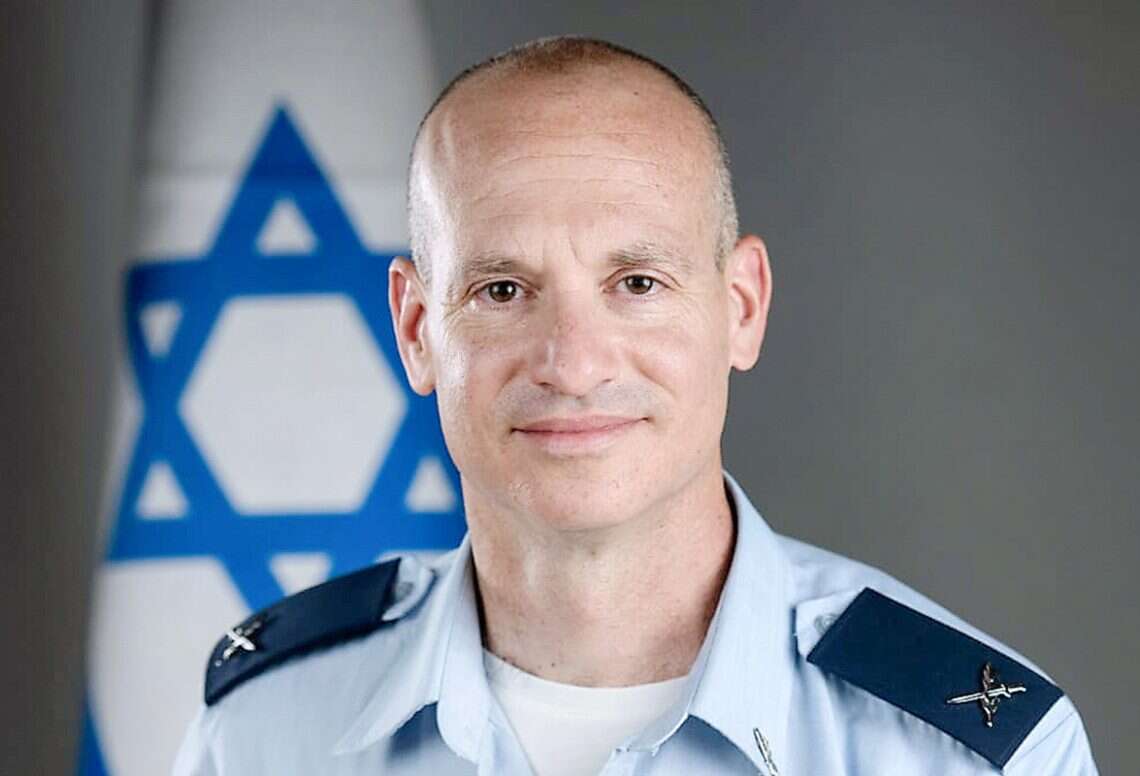
One of the best examples for the close Israel-US defense ties is the fact that the IAF was the first air force in the world outside the US with an operational F-35 squadron. The fifth-generation US-made stealth fighter jet, known locally as "Adir" ("Great"), is the world's most advanced fighter jet to date.
The F-35 garners a great deal of international attention, Keren noted, saying that Israel "is still learning about its capabilities. One expression of that was the Tri-Lightning exercise in late June, which was the first collaboration between Israel, the United States and Britain's F-35 [squadrons]. They flew over the Mediterranean to facilitate shared learning about the aircraft's capabilities."
The defense attaché mission to Washington "is the largest Israeli mission of this kind," he stressed. "The vast relationships we have are expressed in various ways: in practical and operational channels, in training, R&D, and in the number of the mutual delegations dedicated to maintaining the close ties and operational competence of both sides."
According to Col. Tidhar Dar, 45, Israel's defense attaché to Britain, "From the moment you enlist in the IDF you effectively become an emissary for the IDF and the defense establishment, and this only becomes more significant as you rise through the ranks."
The mission, he explained, entails public diplomacy and promoting the defense establishment and the IDF's interests, and "it also requires you to learn the inner workings of the local [military] system, in order to know how to foster productive and high-quality collaborations."

Britain, he told Israel Hayom, "Is home to a community of military diplomats, of which 130 are defense attachés. The community is very active and interconnected and this enables us, from time to time, to promote bilateral issues. But mostly, it serves the IDF's advocacy efforts in times of peace and war both."
Israeli-British defense ties include mutual visits by senior officers – British Armed Forces Chief of Staff Gen. Nick Carter visited Israel in April – and holding joint exercises.
Most recently, the Israeli, British, German and Italian air forces engage in a three-week drill, which Dar said "paved the way to broader cooperation."
A multifaceted mission
Forty-five-year old Col. Amos Nachmani is Israel's defense attaché in Canada, where he says "the most valuable things form a Canadian standpoint are the IDF's operational experience, and the constant learning process as a result of how we deal with the security challenges we face."
While Canada doesn't face similar challenges on its border, it is a significant international force, he explained: "Canada is a senior partner in NATO and in international coalitions, and UN missions, and its military deployment is global. This is why the IDF's profound understanding of the challenges in the Middle East, our superior intelligence-gathering [capabilities], and especially our operational experience create a broad foundation for cooperation. And we benefit from the in-depth study of a professional army."
Nachmani also deals with defense exports and imports, in coordination with the Defense Ministry.
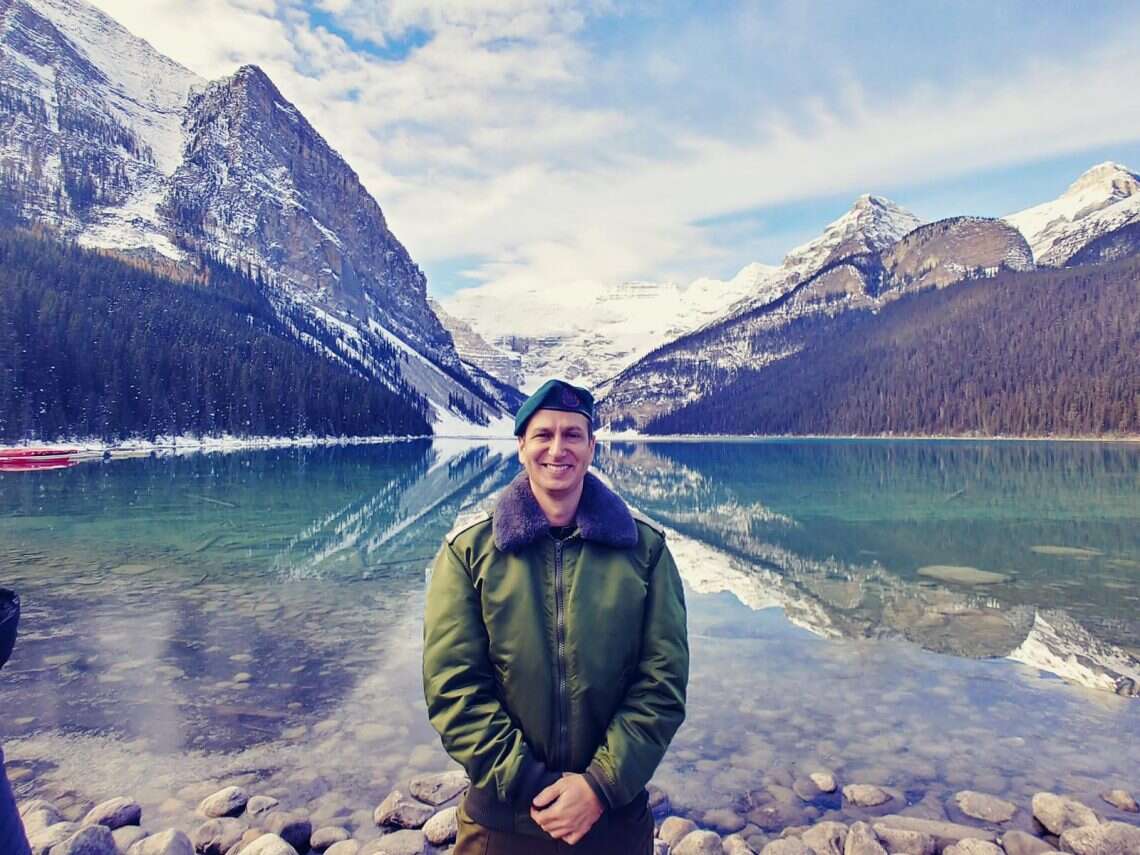
"I work on advancing Israeli defense industries in Canada, so as to create a common language between the IDF and a foreign army by using common platforms. I'm also appraised of their needs and interact with decision-makers in the field of military procurement in the Canadian National Department of Defense."
Service as a defense attaché "is a privilege," he said. "Anyone selected to represent the IDF and the Defense Ministry is fortunate. This is a complex job; you have to balance different cultures, different work methods, and you have to know how to harness the various elements so as to foster cooperation when the challenges they face are different."
This is a unique challenge, he said, "Especially when you consider that it is the second-largest country in the world [the first being Russia]. Canada is 480 times large than Israel."
For Col. Oded Canaan, being named Israel's defense attaché to Brazil meant coming full circle. "We are a third-generation Brazilian family and my parents were also stationed in Brazil as emissaries," he said.
Like Giltman, Canaan, a Portuguese speaker, says that "each country has its own unique military culture and you need to learn how to deal with its decision-making process."
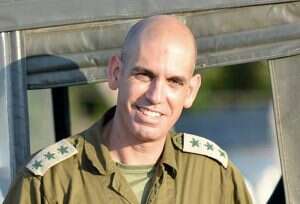
The 45-year-old intelligence officer assumed office in August, but nothing in the training he received ahead of his assignment could have prepared him for the massive wildfires that raged in the Amazon in August and September.
Right off the bat, he "had to oversee a complex aid operation in Brazil in an effort to deal with the fires that were ravaging the world's largest rainforest," he said.
"As an attaché, the immediate question that comes to mind is, 'How can we help?' In this case, and it was unprecedented, we coordinated the arrival of Israeli firefighters with Brazilian authorities. This was a very complex and very significant event. You feel like you're executing your mission and doing your best [to help]. One our firefighters arrived and were deployed on the ground I could see how much we could do to help. That's the moment I remember most of all," Canaan concluded.


